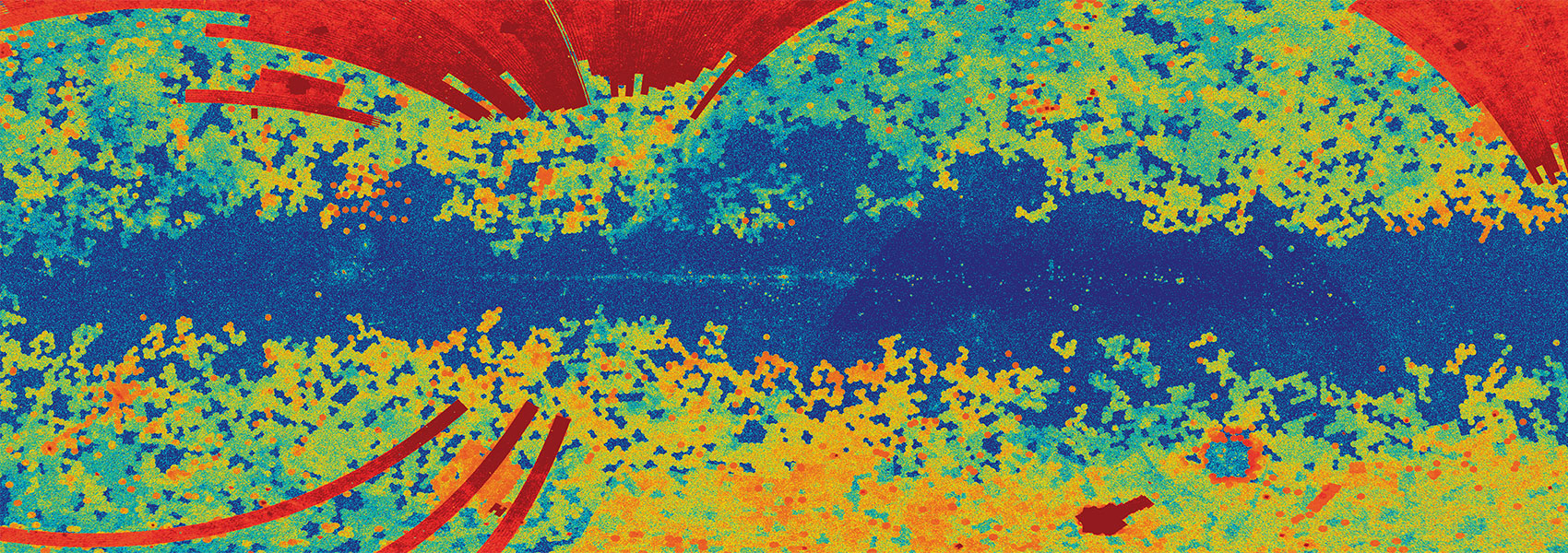November
2011
•
2011ApJ...741...68M
Authors
•
Masiero, Joseph R.
•
Mainzer, A. K.
•
Grav, T.
•
Bauer, J. M.
•
Cutri, R. M.
•
Dailey, J.
•
Eisenhardt, P. R. M.
•
McMillan, R. S.
•
Spahr, T. B.
•
Skrutskie, M. F.
•
Tholen, D.
•
Walker, R. G.
•
Wright, E. L.
•
DeBaun, E.
•
Elsbury, D.
•
Gautier, T., IV
•
Gomillion, S.
•
Wilkins, A.
Abstract
•
We present initial results from the Wide-field Infrared Survey Explorer (WISE), a four-band all-sky thermal infrared survey that produces data well suited for measuring the physical properties of asteroids, and the NEOWISE enhancement to the WISE mission allowing for detailed study of solar system objects. Using a NEATM thermal model fitting routine, we compute diameters for over 100,000 Main Belt asteroids from their IR thermal flux, with errors better than 10%. We then incorporate literature values of visible measurements (in the form of the H absolute magnitude) to determine albedos. Using these data we investigate the albedo and diameter distributions of the Main Belt. As observed previously, we find a change in the average albedo when comparing the inner, middle, and outer portions of the Main Belt. We also confirm that the albedo distribution of each region is strongly bimodal. We observe groupings of objects with similar albedos in regions of the Main Belt associated with dynamical breakup families. Asteroid families typically show a characteristic albedo for all members, but there are notable exceptions to this. This paper is the first look at the Main Belt asteroids in the WISE data, and only represents the preliminary, observed raw size, and albedo distributions for the populations considered. These distributions are subject to survey biases inherent to the NEOWISE data set and cannot yet be interpreted as describing the true populations; the debiased size and albedo distributions will be the subject of the next paper in this series.
Links




